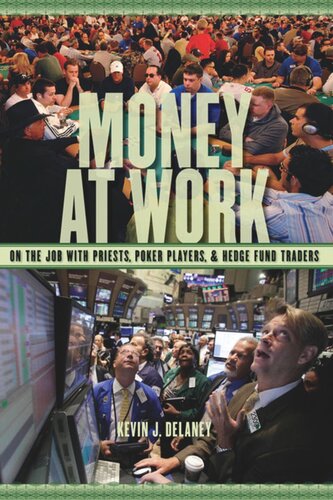

Most ebook files are in PDF format, so you can easily read them using various software such as Foxit Reader or directly on the Google Chrome browser.
Some ebook files are released by publishers in other formats such as .awz, .mobi, .epub, .fb2, etc. You may need to install specific software to read these formats on mobile/PC, such as Calibre.
Please read the tutorial at this link: https://ebookbell.com/faq
We offer FREE conversion to the popular formats you request; however, this may take some time. Therefore, right after payment, please email us, and we will try to provide the service as quickly as possible.
For some exceptional file formats or broken links (if any), please refrain from opening any disputes. Instead, email us first, and we will try to assist within a maximum of 6 hours.
EbookBell Team

4.0
76 reviewsFinancial advisors, poker players, hedge fund traders, fund-raisers, sports agents, credit counselors and commissioned salespeople all deal with one central concern in their jobs: money. In Money at Work, Kevin Delaney explores how we think about money and, particularly, how our jobs influence that thinking. By spotlighting people for whom money is the focus of their work, Delaney illuminates how the daily practices experienced in different jobs create distinct ways of thinking and talking about money and how occupations and their work cultures carry important symbolic, material, and practical messages about money.
Delaney takes us deep inside the cultures of these ‘moneyed’ workers, using both interviews and first-hand observations of many of these occupations. From hedge fund trading rooms in New York, to poker players at work in Las Vegas casinos, to a “Christian money retreat” in a monastery in rural Pennsylvania, Delaney illustrates how the underlying economic conditions of various occupations and careers produce what he calls “money cultures,” or ways of understanding the meaning of money, which in turn shape one’s economic outlook. Key to this is how some professionals, such as debt counselors, think very differently than say poker players in their regard to money—Delaney argues that it is the structure of these professions themselves that in turn influences monetary attitudes. Fundamentally, Money at Work shows that what people do for a living has a profound effect on how people conceive of money both at work and in their home lives, making clear the connections between the economic and the social, shedding light on some of our most basic values. At a time when conversations about money are increasingly important, Delaney shows that we do not merely learn our attitudes toward money in childhood, but we also learn important money lessons from the work that we do.